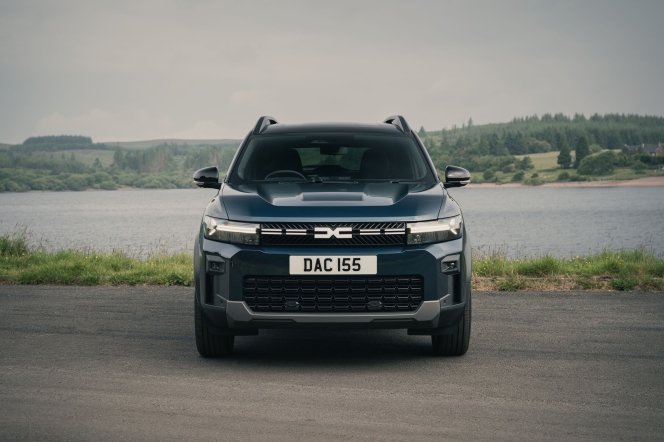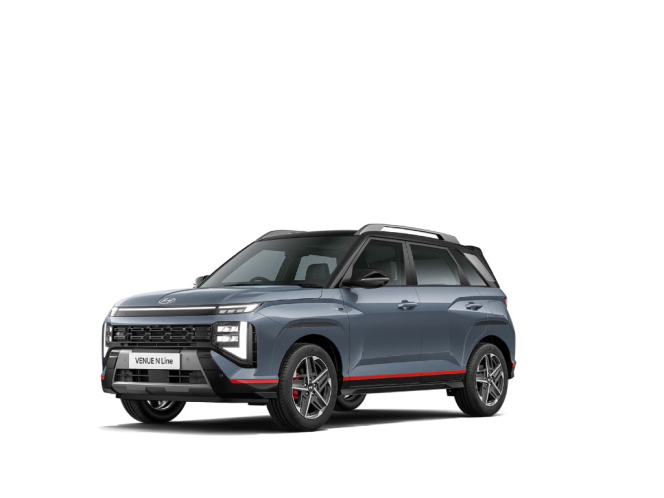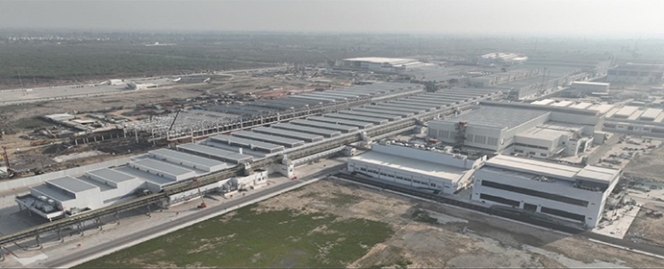
Growing to clock 54,850 units in February 2021 as against the sale of 27,273 units in the corresponding month last year, the compact SUV segment has come to include the participation of almost all the manufacturers in the country today. The Kushaq marks the latest entry, and clearly the most exciting in terms of what it has to offer. A part of the segment that arguably is the most trending as far as passenger vehicles are concerned, the Kushaq is indicative of the direction in which the segment of compact SUVs is heading in. It is was until recently led by Maruti Brezza, a compact SUV segment that shares its platform as well as the assembly line with the Toyota Urban Cruiser. Said to have grown at the expense of mid-size sedans (including compact sedans) and premium hatchbacks, the compact SUV segment consists of no less than 11 offerings today. They are proof of the fact that they are not missed by any manufacturer. Overtaking the Maruti Brezza as the most selling compact SUV in April 2021, the Hyundai Venue has demonstrated how manufacturers like Hyundai, which began by selling high-end SUVs like Terracan and Santa Fe in India, are warming up to the trend of compact SUVs that is unique to India. Clearly so, when one understands that the Renault Duster was born out of the highly popular Renault Clio as a cost-effective crossover in Europe. It soon challenged more premium offerings there like the Skoda Yeti. Highlighting Indian automobile buyers’ psyche of cost consciousness, the compact SUVs like Kushaq are highlighting new growth prospects, technologies and features.

Tech and price trends
Considering the starting price of Brezza and Venue at INR 7.39 lakh and INR 6.92 lakh approximately, the Kushaq, at a starting price of Rs.10.5 lakh is certain to appear costly. Zac Hollis, Skoda’s director of Sales, Service & Marketing, has informed through a tweet that even the basic ‘Active’ variant carries a significant additional equipment over its competitors (see the comparison chart). The Kushaq is being offered with a TSI technology engine right at the basic level, he has added. Being offered with a cylinder deactivation technology that shuts two out of the four cylinders by sensing the load (via the accelerator pedal input) to ensure superior fuel efficiency and lower carbon footprint, the Kushaq reflects a technology trend that is taking shape among compact SUVs as new products join the fray. So, if the Renault Duster and one or two other vehicles in the compact SUV segment offer a turbo-petrol engine like the Kushaq does, right at the basic level, a majority offer a MPI engine. The technology trend concerning compact SUVs ironically also highlights a stress on petrol engines. The BSVI emission norms and decreasing price gap between petrol and diesel are said to be the reasons. Presenting the superior drive-ability and fuel efficiency of diesel are the turbo-petrol (also termed as Gasoline Direct Injection) models and variants. In the Kushaq, Skoda has termed the technology coinage as TSI.
If the compact SUV offerings like the Kushaq, Brezza, Toyota Urban Cruiser, Duster and many others highlight a rising trend of petrol only variants in-line with the reasons mentioned above, an amount of technological exploration is on in the area of transmissions. As urban buyers warm up to compact SUVs and make a shift over from sedans and hatchbacks, almost every model being offered on the market is available with an option of an automatic gearbox. The highlight of this trend is the mushrooming of dual-clutch automated transmissions that support sporty and agile driving experience. As the first product to spring from Volkswagen Group’s India 2.0 project (see box), the Kushaq, is available with a choice of the much acclaimed DSG automated transmission. Apart from just one or two vehicles in its segment offering a CVT ‘auto’ transmission, and what could be termed as conventional ‘torque convertor’-based auto-box, many compact SUVs are offering their version of DSG automated transmission by calling them as DCT (Dual-Clutch Transmission). Most basic trims in the segment are offered with a 5- or 6-speed manual transmission.

Feature trends
Almost all the compact SUVs being offered in India are front-wheel drive with the engine and trans-axle located transversely at the front. The only four-wheel drive compact SUV, Duster, has already lost its arrangement to power both the axles. A look at the powertrain arrangement of the compact SUVs and their monocoque body construction, and it will be clear that they could be described as front-wheel hatchbacks with ‘lift-up’ suspension, an appropriate body style, and bigger dia. wheels and higher ground clearance. Most compact SUVs are equipped with McPherson strut suspension at the front and a twist beam axle at the rear. The Kushaq is no exception. It is keen to set itself apart from the Korean, Japanese and homegrown offerings like the Mahindra XUV300 with safety, quality, design and technology, according to Hollis. Offering TSI engines and DSG transmission, which were until now found on more premium offerings, the Kushaq, reflects its technological composition and the fact that it is the first vehicle to roll-out of the India-centric project set up with an investment of Euro-one billion, in its price positioning. The compact SUV with the lowest starting price – the Hyundai Venue at Rs.6.92 lakh approximately, offers a 1.2-litre MPI petrol engine at the basic level. It is mated to a 5-speed manual gearbox.

When it comes to features, none of the compact SUVs on offer, including the Kushaq, is immune to the fact there is a direct bearing of price. The basic variants get what could be termed as ‘essential’ features whereas the top-end variants get a variety of ‘bells and whistles. Put together all the them and they include voice command, LED headlamps and tail lamps, rear view monitor, airbags, ABS and EBD, electronic parking brake, air purifier, start/stop, telematics, sunroof, TPMS, ESC, rear parking sensors, VSM, hill-start assist, cruise control, keyless entry, rear parking camera, touchscreen infotainment system and others. A look at the features offered by the compact SUVs, and a clear trend is evident in terms of technology. This technology pertains to an ability to stay connected with an increasingly smarter use of telematics. Many compact SUVs offer satellite navigation, tracking and connectivity features that are unique to their manufacturers. Ford, for example, offers the SYNC connectivity technology on the EcoSport. What makes it interesting is that a lot of software work relating to the connectivity features and various other functions of these compact SUVs has happened in India. If the Brezza’s local content amounts to 98 percent, that of the Kushaq is 93 percent.

Summing up
Emerging as a hot-bed of style and technology (the Tata Nexon is also available as an electric compact SUV and the MG Hector as a hybrid compact SUV), the trend pertaining to compact SUVs is getting clearer and clearer with every new product introduction. It is underlying quality, safety, comfort, localisation (read as Atmanirbhar Bharat) and an ability to control costs.
Dacia Rolls Out 100,000th Bigster In Just One Year
- By MT Bureau
- February 05, 2026

Renault Group-owned European car brand Dacia has achieved a significant milestone with the rollout of the 100,000th Bigster just one year after its production began at the Mioveni facility in Romania. This impressive volume highlights the immediate and substantial demand for the brand's latest model. Even prior to its full market launch, the vehicle garnered over 13,000 pre-orders, signalling strong early interest in its proposition of a value-oriented, family-sized SUV.
The model swiftly translated this initial promise into market leadership, becoming the best-selling C-SUV to retail customers across Europe in the second half of 2025. This commercial success is mirrored in the United Kingdom, where close to 5,000 orders have been recorded. British buyers have shown a distinct preference for the efficient hybrid 155 powertrain and the generously specified Journey trim level, with Indigo Blue being the colour of choice.
Beyond sales figures, the Bigster's impact has been validated by influential industry awards, most recently at the 2026 What Car? Car of the Year Awards, where it was hailed as a definitive value champion. Designed to challenge the status quo, the Dacia Bigster, starting from GBP 25,215, successfully delivers a robust, well-equipped and practical solution for families, firmly establishing its successful position in the competitive automotive landscape.
Hyundai Motor India Reports INR 123 Billion Profit In Q3 FY2026
- By MT Bureau
- February 02, 2026

Hyundai Motor India (HMIL) has released its unaudited financial results for Q3 FY2026 and nine months ending 31 December 2025.
The company reported a Profit After Tax (PAT) of INR 123.44 billion for Q3, representing a 6.3 percent increase YoY. Revenue for the quarter reached INR 1,797.35 billion, up 8 percent compared to the same period last year. EBITDA stood at INR 2,018.3 billion, a 7.6 percent rise, supported by festive demand and the implementation of GST 2.0.
The company stated that the domestic demand was supported by wholesale volumes increasing 5 percent QoQ. The Hyundai Creta recorded sales of over 200,000 units in the 2025 calendar year, while the new Venue model has received nearly 80,000 bookings to date.
Hyundai Motor India also entered the commercial mobility segment with the Prime HB and SD taxi models. Exports grew by 21 percent YoY in Q3 FY26, accounting for 25 percent of the total sales mix.
For the nine-month period, EBITDA reached INR 6,632.5 billion, a 3.3 percent increase. EBITDA margins expanded to 12.8 percent, up from 12.5 percent in the previous year, despite costs related to capacity stabilisation and commodity prices.
Tarun Garg, Managing Director & Chief Executive Officer, said, “The third quarter performance underscores our resilience and strong execution of 'Quality of Growth' strategy, marked by healthy growth in volumes, revenue and profitability. Notably on a year-to-date basis, EBITDA margins expanded to 12.8 percent as against 12.5 percent last year, supported by our efforts towards improving sales mix and prudent cost control measures. As we move ahead, the robust January’26 sales number gives us great momentum towards a healthy 2026.”
|
Particulars |
Q3 FY26 |
Q2 FY26 |
Q3 FY25 |
9M FY26 |
9M FY25 |
|
Revenue |
179,735 |
174,608 |
166,480 |
518,472 |
512,526 |
|
EBITDA |
20,183 |
24,289 |
18,755 |
66,325 |
64,211 |
|
EBITDA % |
11.2% |
13.9% |
11.3% |
12.8% |
12.5% |
|
PAT |
12,344 |
15,723 |
11,607 |
41,759 |
40,259 |
Jeep Reaffirms India Commitment With Strategic Plan Jeep 2.0
- By MT Bureau
- February 02, 2026

Stellantis-owned Jeep has announced its Strategic Plan Jeep 2.0, positioning India as a central hub for its operations in the Asia Pacific region. The plan focuses on localisation, manufacturing depth, and export expansion from the company's facility in Ranjangaon, Pune.
As part of the strategy, Jeep intends to increase localisation levels to 90 percent, up from the current 65–70 percent. This move is aimed at strengthening supply-chain resilience and cost competitiveness. The Ranjangaon plant, which has an annual capacity of 160,000 vehicles, currently exports the Compass, Meridian, and Commander to markets including Japan, Australia and New Zealand. Plans are underway to expand exports to Africa and North America.
The company plans to introduce a new vehicle lineup in India starting from 2027. In the interim, Jeep will maintain its current portfolio through refreshes and special editions. To support its customers, the brand has introduced the Confidence 7 programme, which includes a buyback scheme, pre-maintenance packages, and extended warranties.
At present, Jeep operates over 85 sales and service touchpoints across 70 cities in India. The automaker stated that in 2025, the Wrangler Willys 41 limited edition sold out within seven days. The company is also focusing on its owner community, which has reached 100,000 members, through experiential platforms and brand clubs.
Shailesh Hazela, CEO & Managing Director, Stellantis India, said, “Jeep’s 85-year legacy is built on authenticity and adventure. Strategic Plan Jeep 2.0 lays out how we will sharpen our product strategy and strengthen the customer experience year after year, driven by deeper localisation, global product alignment, expanding our vehicle offerings, and programs that deliver real value. We are equally focused on taking care of our existing customers, ensuring they receive the support, service and confidence they expect from Jeep. Success in India demands resilience and long-term commitment and we are investing with that clarity to ensure Jeep remains a brand of pride and desirability.”
Maruti Suzuki India Reports INR 37.94 Net Profit For Q3 FY2026
- By MT Bureau
- January 28, 2026

Maruti Suzuki India, the country’s largest passenger vehicle manufacturer, has reported its financial results for Q3 FY2026.
The company reported revenue of INR 475.344 billion, as against INR 368.02 billion last year, net profit came at INR 37.94 billion, as against INR 36.59 billion last year. It is to be noted that the net profit was impacted for Q3 FY2026 was impacted due to a one-time provision of INR 5,939 million relating to new Labour Codes.
During the period, the company achieved its highest quarterly domestic sales of 564,669 units, an increase of 97,676 units over the previous year. Total sales reached 667,769 units, which included 103,100 units in exports. This performance was supported by a recovery in the car market following GST reform, with the small car segment in the 18 percent GST bracket contributing significantly to the volume increase.
For the nine-month period from April to December 2025, the company recorded its highest sales volume, net sales and net profit. Total sales volume reached 1,746,504 units, with domestic sales at 1,435,945 units and exports at 310,559 units. Net sales for this period increased to INR 1,242 billion, while net profit grew to INR 1,085 billion.
Financial statements for the period have been restated following the amalgamation of Suzuki Motor Gujarat (SMG) with MSIL. This process took effect from 1 April 2025. The company continues to monitor market conditions as it manages its manufacturing and sales operations.
The recovery in the car market was led by the small car segment. Sales growth in this category accounted for 68,328 units of the total domestic increase. The company remains focused on domestic and export markets to maintain its sales volumes.







Comments (0)
ADD COMMENT